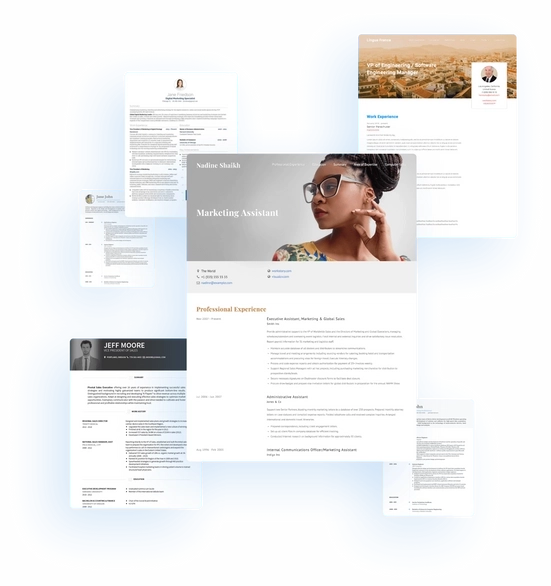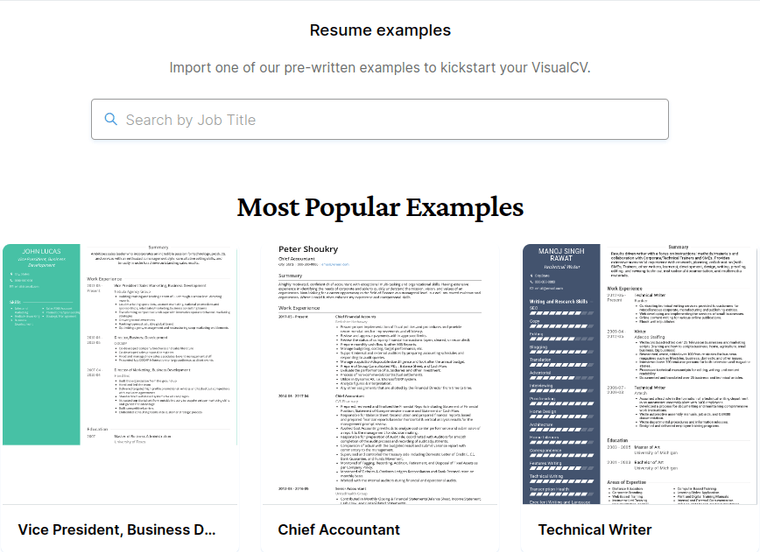
How to Ask About Benefits in an Interview

You’re half a year into the job of your dreams, safely past your probation period, and you’re thinking of treating yourself to a vacation. You’re dreaming of white sand beaches and glorious ocean views – until you look again at your contract, and realize that you barely get enough PTO to cover your kid’s time off school. Even worse, you can’t save any of that valuable downtime by working from home.
Most discussions about negotiating compensation focus on salary, but neglecting benefits can be a huge mistake. Employee benefits can have a serious impact on your quality of life, both in the workplace and at home. Not only can they make up for a lackluster salary – they can give you support, flexibility and peace of mind.
We’re here to support you in asking your prospective employer about their benefits packages. Whether you’re hoping for healthcare, remote work options, or simply a dog-friendly office space, you should be able to ask for what you want with confidence.
In this article, we’ll cover the following points:
- Why it’s important to ask about benefits
- Some common examples of benefits offered by employers
- How and when to ask about benefits
- Discussing benefits after you receive an offer

Why Ask about Benefits?
When negotiating a job offer, you need to live by the maxim “don’t ask, don’t get.”
Negotiation, whether for benefits or higher pay, is an expected part of the hiring process. If you don’t do it, you could find yourself backed into a corner – walking back a commitment to a specific salary or benefits package is considered inappropriate behavior. If you realize too late that your work is worth more, you may not be able to double back and request the compensation you deserve.
Asking about benefits in an interview, if you do it right, isn’t a faux pas. It’s a way to prepare the ground for a later negotiation, should you be made an offer. By signaling both your expectations and your knowledge of the industry, you show your prospective employer that you know your worth.
That can make the negotiation process smoother later on. In the moment, it can also prove that you understand industry norms and that you’re prepared to research proactively and thoroughly. Both of those are great qualities to have in any workplace, and they will make you a more attractive prospect to a hiring manager.
In short, you should ask about benefits because it will make you look prepared, savvy, and confident. It’s a good look for an interview.
Common Employee Benefits
You know why it’s important to ask – but what are you planning to ask for? To get you started, here’s a list of some common benefits offered by employers.
This isn’t an exhaustive list, so don’t stop here! Talk to friends, colleagues, and Google to get a broader picture of what could be available to you.
Health Insurance and Dental Care
Health insurance is one of the most common employee benefits, simply because it’s so popular with employees. As a result, most US-based employers offer health insurance as a matter of course. While it’s worth discussing premium payments with your prospective employer, you may not even have to ask for health insurance – the odds are good that your employer will be able to provide it.
In the US, private employers pay an average of 78% of medical care premiums for single coverage health insurance plans. That level of support with your healthcare costs can make a huge difference. Employers may also offer similar support for family coverage plans, if you need to ensure that your loved ones are taken care of too.
Dental care benefits are less common in the private sector – though more available to government and public sector workers. That shouldn’t deter you from asking, however, as dental care expenses can be just as debilitating as those for medical care.
Remote Working
Remote working has been a necessity for many during the course of the COVID-19 pandemic. While many people have been looking forward to getting back to the office routine, just as many people have found remote working to be a satisfying, rewarding way to get the job done.
If you’re a parent, remote working could help you strike the balance you need between work and childcare. If you live far away from the office, it could be the solution to the tedium of your daily commute. And if you’re neurodiverse or disabled, it could offer you a more accessible workplace – your own home, which is already perfectly suited to your comfort and your needs.
Many companies are pushing for a return to office-based working, now that we’re better equipped to manage COVID-19. On the other hand, workers are pushing back, citing an increase in productivity and personal happiness as a result of their home-working arrangements. If you think remote working sounds right for you, it’s worth asking how flexible your potential employer is prepared to be – even an extra day or two at home every week could make a difference!
Paid Time Off
No employer can reasonably expect their staff to be available all the time. Whether you’re sick, experiencing bereavement, or just in need of a vacation, it’s important to know how much PTO an employer is willing to offer new staff.
If your work-life balance matters to you, this is one you will need to discuss with your hiring manager. Does the company use an all-encompassing PTO system to cover both vacation time and sick leave, or does it distinguish between the two? If you are disabled or living with chronic illness, the latter may be more attractive, as it will prevent any periods of ill health from eating into your vacation days.
You should also consider how childcare, parental leave, bereavement time, and even jury duty commitments factor into your organization’s PTO policy.
401k and Retirement Plans
While it may not be as eye-catching as some other benefits, assistance in saving for your retirement can go an extremely long way.
Many employers offer 401k plans along with an offer to match your contributions – at least up to a certain level. You should be aware of what your prospective employer usually offers to contribute before your interview. If necessary, you can try to negotiate for a higher employer contribution at the point of receiving an offer.
It’s also worth checking whether your employer offers a pension plan instead of a 401k. While they’re less common than they used to be, pensions present a significantly lower investment risk than 401k plans, and may be a better option in the long term.
Quality of Life Perks
These are the little things that might not be essential, but can still go a long way toward improving your satisfaction at work. Some small but significant perks you may want to discuss include:
- Free lunches
- Gym membership
- Public transit passes
- Performance-based bonuses
- Pet-friendly offices
- Company social events

How to Ask about Benefits in an Interview
You’ve made it to the interview stage! Now it’s time to start planning your approach. Here are a few tips to keep in mind as you get ready to ask about benefits for the first time.
Do Your Research
When it comes to interviews, forewarned is always forearmed. Make sure you go into any discussion of benefits with as much information as you can find. That means researching not only the company that’s interviewing you, but other local organizations of a similar size.
Some companies will advertise employee benefits on their website. If they don’t, check out sites like GlassDoor, which allow current and former employees to share insight on the internal culture of their workplaces. You may find more information about benefits there.
With this information in your back pocket, you’ll have a sense of what’s possible when it comes to benefits. It will also show a prospective employer that you’ve done your homework when it comes to the company culture – and proactivity is a great quality in a potential new hire.
Timing is Everything
While it’s important to ask about benefits, it’s equally important not to get ahead of yourself. You should always wait to ask about benefits until you’ve caught your interviewer’s interest. Walking into the room and immediately asking the question isn’t a good look for a potential new hire.
Ideally, you should wait for the interviewer to show clear interest in you before you ask. If they’re asking about potential start dates or references, that’s a sure sign that a conversation about benefits could be on the table.
Don’t Be Too Specific
At this stage, you’re having an exploratory conversation, not an outright negotiation. Always lead with questions about what your potential employer is willing to offer you, rather than questions about specific benefits or perks.
Once an interviewer has signaled an openness to offering benefits, it’s usually safe to ask questions about specific perks you have in mind. If you’re really hoping for a remote working agreement, it’s better to indicate that now. That way, if you receive an offer, they’ll be prepared to discuss it when the time comes to negotiate for real.
Ask Around the Subject
If you aren’t sure whether it’s appropriate to lead with a forthright question about benefits, try asking different questions. The following conversation-starters might give you an idea of the culture in your prospective workplace, which could indicate the types of benefits that may be available to you.
- “What can you tell me about the culture in this organization?”
- “If I were offered this job, what would my schedule be like?”
- “What are your favorite things about working for this company?”
Once you have more of a rapport with your interviewer, you could try these questions, too. These are more specific, but if your interviewer is interested in you as a candidate, they shouldn’t come across as rude.
- “What is the company’s approach to work-life balance?”
- “How has the organization responded to the COVID-19 pandemic?”
- “What sort of healthcare does the company offer employees?”
Think About Salary Too
We’ve already written about discussing salary in a job interview, so we won’t get into it in depth here. Still, it’s important to keep in mind that you will need to strike a balance between your salary expectations and the benefits you hope to receive at work.
Many companies that pay lower salaries make up for it with more extensive benefits packages for their employees. Conversely, companies that pay more up front might offer employees less in benefits. Asking for more of one may limit your prospects when it comes to the other.
There are no hard and fast rules for balancing benefits and pay. You need to evaluate your own needs and expectations, decide where you can compromise, and know ahead of time what you don’t want to give up.
After the Job Offer
If you receive a job offer, congratulations! You’re now in a position to negotiate your benefits package in earnest.
If your employer isn’t able to offer the benefits you need, they might offer alternative benefits in an effort to encourage you to come on board. Alternatively, they might offer to raise your salary instead. You can always try to push for the initial benefits you wanted, but keep in mind that employers may have limits on what they can offer, and don’t take it personally if you get a no.
You are the only one who can decide what’s best for you as an employee, so think carefully about your needs and preferences before you commit. Just remember that it may be hard to change course later if you change your mind.
When thinking about benefits, it’s important to think about your long-term as well as your immediate gain. Free lunches might be nice, and the value will certainly build over time – but are they as valuable as a good pension plan or 401k? And will the health insurance your employer offers make up for being unable to work from home?
The best thing you can do for yourself is to prepare. Never go into a job interview under-informed or underprepared – it will likely sink your chances at getting the job, never mind at getting the benefits you need and deserve. Know your worth, know what you can reasonably expect, and don’t get ahead of yourself in the heat of the moment.
If you’re struggling to get to the interview stage in the first place, we can help! Check out our cover letter examples, and see how you can get hiring managers to sit up and pay attention. You can thank us when you’re enjoying that paid vacation time!

Written By
Waverly March
Content Writer + Resume Expert
Waverly is a freelance writer, former HR officer and current international traveller. They believe in doing your research, showing up prepared, and bringing your passions with you to work. They've helped countless job seekers create better resumes and cover letters to improve and grow their careers.

After much hard work, you've finally received a job offer! But what happens next? Explore our complete guide on how to negotiate a job offer.
March 30, 2022
Read Post

Content Manager & Resume Expert

Choosing the right design for your CV can be difficult. With these tips, you will be able to make the right choice and score that interview!
October 9, 2020
Read Post

Co-Founder & Director

Adaptability in the workplace is an important part of a successful career. Read our helpful guide to showcasing adaptability skills on your resume.
October 28, 2021
Read Post

Community Success Manager & CV Writing Expert
Copyright ©2025 Workstory Inc.